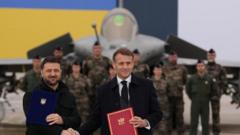Is World Cup Qualifying Unfair to Europe? Gattuso Weighs In!

Published: 2025-11-17 18:00:12 | Category: sport
Italy's football coach Gennaro Gattuso has voiced concerns regarding FIFA's qualification process for the World Cup, arguing that it is unfair despite Italy’s impressive qualifying record. Following a heavy defeat against Norway, Italy finds itself in a precarious position, forced to enter the play-offs for a spot in the 2026 World Cup. Gattuso's criticism highlights the disparities in qualification slots among different football confederations, particularly the stark contrast between Europe and South America.
Last updated: 23 October 2023 (BST)
What’s happening now
As of now, Italy's national football team is grappling with the reality of potentially missing out on a third consecutive World Cup. After suffering a 4-1 defeat to Norway, they must now navigate two single-leg play-offs to secure qualification for the tournament set to take place in Canada, Mexico, and the United States in June and July 2026. This situation has led to a renewed focus on FIFA's qualification structure, particularly the allocation of slots among different confederations.
Key takeaways
- Italy faces a challenging path to qualify for the 2026 World Cup after finishing second in their group.
- Gattuso criticises the current qualification process, suggesting it favours some confederations over others.
- The 2026 World Cup will feature 48 teams, introducing more complexity into the qualification process.
Timeline: how we got here
Italy's football history in World Cup qualifiers has seen a significant shift in recent decades. Below is a brief timeline of key events leading to the current situation:
- 1990: Italy hosted and reached the semi-finals of the World Cup.
- 1994: Italy reached the final but lost to Brazil on penalties.
- 2018: Italy missed the World Cup after losing to Sweden in the play-offs.
- 2022: Italy again failed to qualify, this time losing to North Macedonia.
- 2023: Italy's defeat to Norway confirms their need for play-offs to qualify for the 2026 World Cup.
What’s new vs what’s known
New today/this week
Currently, Italy's position in the qualification process has become precarious after their recent defeat. Gattuso's comments highlight the urgency for a review of the qualification system, particularly as it pertains to the number of slots allocated to different regions.
What was already established
It has been known for some time that the 2026 World Cup will expand to include 48 teams. This change has raised questions about how qualifying slots are distributed among FIFA's six confederations, with particular scrutiny aimed at the disparity in opportunities for European teams compared to those from South America and Africa.
Impact for the UK
Consumers and households
The implications of Italy's struggles to qualify for the World Cup extend beyond the pitch. Fans in the UK, especially those of Italian descent, may feel a sense of disappointment. However, the broader context of football culture and international competition remains vibrant, with other teams to support.
Businesses and jobs
For businesses involved in sports-related sectors, such as merchandise, broadcasting, and hospitality, Italy's potential absence from the World Cup could impact sales and viewership, especially among fans who may have anticipated supporting their team in the tournament.
Policy and regulation
As discussions about the qualification process unfold, there may be policy implications for how national football associations approach international competitions. The debate could influence future regulations regarding qualification and the structure of international tournaments.
Numbers that matter
- 54: The number of UEFA nations competing for World Cup qualification.
- 48: The total number of teams that will participate in the 2026 World Cup.
- 6: The number of automatic qualification slots for South America out of 10 participating nations.
- 9: The number of automatic slots for Africa, despite only 7 of its 53 teams being in the top 50.
- 7-1: The aggregate score of Italy's losses to Norway during the qualification process.
Definitions and jargon buster
- FIFA: The Fédération Internationale de Football Association, the governing body of football worldwide.
- UEFA: The Union of European Football Associations, which governs football in Europe.
- Qualifying play-offs: Matches that determine which teams advance to the World Cup when they do not qualify automatically.
How to think about the next steps
Near term (0–4 weeks)
Italy must prepare for the upcoming play-offs with a renewed strategy, focusing on building team morale and addressing weaknesses exposed during the qualifiers.
Medium term (1–6 months)
As the football world watches closely, Italy's performance in the play-offs will be crucial. Success could restore confidence in the national team, while failure may lead to a reevaluation of coaching strategies and player selection.
Signals to watch
- Performance in the play-offs, scheduled for March 2024.
- Public and media response to Gattuso’s comments regarding the qualification process.
- Changes in FIFA policies regarding qualification structures and slots.
Practical guidance
Do
- Support the national team through merchandise and attendance at local screenings.
- Engage in discussions about the future of football in Europe and the implications of qualification processes.
- Stay informed about developments in the qualification system and upcoming matches.
Don’t
- Neglect the importance of grassroots support for football in the UK.
- Overlook the impact of international tournaments on national pride and unity.
- Disregard the evolving landscape of football qualifications and its implications for all nations.
Checklist
- Keep track of Italy's play-off schedule and potential opponents.
- Monitor team news and player fitness updates leading up to the matches.
- Participate in local football events to foster community support.
- Engage in conversations about the changes in FIFA's qualification process.
- Follow updates on potential reforms in the qualification system.
Risks, caveats, and uncertainties
While Gattuso’s criticisms raise valid points about the fairness of the qualification process, it is essential to consider the complexities involved in international football. Changes may be slow to materialise, and national teams must adapt to the current structure. Discrepancies in team strengths and the number of slots available across confederations remain contentious issues, and the dynamics of international football can shift rapidly based on performance and governance decisions.
Bottom line
Italy's football team faces a critical juncture as they seek to secure qualification for the 2026 World Cup. Gattuso’s call for reforms in the qualification process may resonate with fans, but immediate focus must remain on the upcoming play-offs. The situation underscores the need for continuous evaluation of FIFA's policies and their implications for fair competition across the globe.
FAQs
What did Gennaro Gattuso say about FIFA's qualification process?
Gattuso expressed concerns that the current qualification system is unfair, especially after Italy's strong qualifying record of six wins. He highlighted disparities between European and South American slots for the World Cup.
How does the World Cup qualification process work?
The qualification process varies by confederation. In Europe, 54 nations compete for a limited number of slots, while South America has a smaller pool of teams with more automatic qualifiers.
What are Italy's next steps for World Cup qualification?
Italy must prepare for two single-leg play-offs to secure their place in the 2026 World Cup, focusing on improving team performance and addressing weaknesses exposed during the qualifiers.



